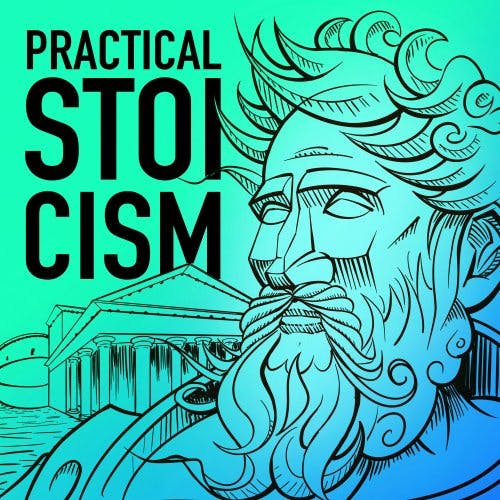Habituation and the Practice of Stoic Virtue (Meditations 2.10)
Description
In this episode, I cover Meditation 10 from Book 2 of Meditations, where Marcus Aurelius reflects on the comparison between faults driven by anger and those driven by desire. He references Theophrastus, who argued that errors rooted in pleasure and appetite are graver than those caused by anger. I explore this idea, explaining how Stoics view actions driven by desire as more deliberate and habituated than those caused by reactive emotions like anger. When we act out of anger, it is often a response to external stimuli, a proto-emotion that we can manage. However, when driven by pleasure, it is a deeper habituation that reflects ongoing indulgence in vice, making it harder to correct.
I also discuss the translation issues around the term "effeminate," which appears in some versions of this meditation. I explain how the term used in Greek more accurately means "morally weak" rather than a critique of femininity. Marcus’ message is not about gender but about the danger of succumbing to our desires without rational consideration, a habit that can lead to greater moral failings over time.
The episode further delves into the concept of habituation as a critical Stoic tool. I emphasize that Stoicism is not just a philosophy but a practice that requires repeated, deliberate actions. Through consistent practice, our responses to situations become reflexive, turning virtuous behavior into a habit. This is why true Stoic progress involves moving beyond conscious effort to a stage where virtue becomes second nature, a goal that even I am still striving to achieve.
"Like a true philosopher Theophrastus says, when comparing, as men commonly do compare, various faults, errors of appetite are graver than errors of temper. For clearly one who loses his temper is turning away from Reason with a kind of pain and inward spasm; whereas he who offends through appetite is the victim of pleasure and is clearly more vicious in a way and more effeminate in his wrong-doing." - Meditations 2.10
--
Go ad-free : https://stoicismpod.com/members
Follow the print publication : https://stoicismpod.com/print
Take the free course : https://understandingstoicism.com
Order my book : https://stoicismpod.com/book
Source Text : https://stoicismpod.com/far
Learn more about your ad choices. Visit megaphone.fm/adchoices






![Living Well on a Hot Planet [The COP30] Living Well on a Hot Planet [The COP30]](https://megaphone.imgix.net/podcasts/82ac64f8-c138-11f0-abee-c30879677551/image/a3e37c52d32ddfd39172782db3b05a3f.jpg?ixlib=rails-4.3.1&max-w=3000&max-h=3000&fit=crop&auto=format,compress)

![The Stoic Blot [with Jason Pack] The Stoic Blot [with Jason Pack]](https://megaphone.imgix.net/podcasts/6ca4f694-b75f-11f0-a7d6-0762c0f44e50/image/a3e37c52d32ddfd39172782db3b05a3f.jpg?ixlib=rails-4.3.1&max-w=3000&max-h=3000&fit=crop&auto=format,compress)
![Phi Curious [with Massimo Pigliucci] Phi Curious [with Massimo Pigliucci]](https://megaphone.imgix.net/podcasts/ac81490e-b028-11f0-80bf-03e6be4ea1d0/image/a3e37c52d32ddfd39172782db3b05a3f.jpg?ixlib=rails-4.3.1&max-w=3000&max-h=3000&fit=crop&auto=format,compress)











